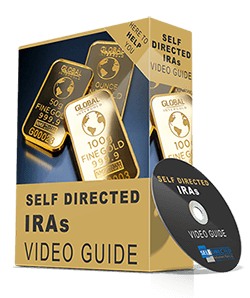image source: www.freepik.com
With most employers now offering attractive 401(k) plans with multiple investment options and a matching contribution, retirement planning funds have become easily accessible. On the other hand, anyone willing to invest a few thousand dollars can easily set up an IRA in an instant without much effort. These plans are easy to set up, the contribution deductions can be automated and you don’t need to put in any extra thought as the interest returns are bank declared on fixed investments. However, all of this can change if your IRA is based on mutual funds because then, your choice of funds can make a big difference down the line.
If you are a recent college grad or you’ve just started your career, both 401(K) and IRA can give you good returns. But as your career progresses and time passes things get complicated and financial priorities often change from saving for retirement to building wealth. Traditional retirement plans were the best option some 20 years ago but given the existing financial landscape, it is important to know how these retirement plans earn down the line. If you are a high net worth individual who wants to create a bountiful retirement reserve and pass on the assets, the 401(k) Vs. IRA comparison proves to be very useful in exploring the implications of each, for planning an estate.
Why Estate Planning is Important for HNIs
Unlike retirement planning, where you are creating a nest egg to cover the expenses of retirement, estate planning is about passing on the assets and wealth that took you a lifetime to build. However, even years of excellent financial planning and consistent contributions can be severely undermined due to poor estate planning.
Another key aspect of estate planning in curtailing the estate taxes that your heirs are required to pay on the legacy they’ve inherited. 401(k) and IRAs are tax-advantaged plans and so they are considered effective wealth-creation vehicles for both estate planning and retirement planning.
There are some excellent strategies that allow retirees to create millions in assets from their IRA and 401(k) plans and strengthen their savings portfolio.
| Maximum Contribution | IRA | 401(k) |
| Below Age 50 | $5,500 | $18,500 |
| Age 50 and Above | $6,500 | $24,500 |
Consistent contributions from top salaried professionals over a course of 30 years can create a reserve of more than a million in assets if investments yield good returns.
401(k) vs. IRA – Tax Implications
If you are investing in a traditional IRA or an employer-sponsored 401(k) plan, then your contributions are pre-tax and this can lower your existing tax liability. However, you are required to pay tax on withdrawals during retirement.
But, if you invest in a Roth IRA, you get the advantage of tax-free disbursements because all your contributions are taxed at the beginning. This is why a Roth IRA is more beneficial as a component of estate planning as it allows you to pass on your wealth to your heirs tax-free. Think of it like this:
You pay the taxes on the seed and you get the harvest tax free!
The Downsides of Both 401(k) and IRAs
When it comes to mitigating risk, both the plans are equally risky as the savings generally land in mutual funds, stocks and bonds that are subject to market volatility. Since the global stock markets are constantly fluctuating, one market slide can send the financial gains crashing, resulting in a loss of capital gains along with the principal amount invested. This is why financial advisors remind investors that both 401(k) plans and IRAs are intended for long-term growth.
Since none of these plans have a guaranteed return rate, it is best to consider your risk tolerance before you set up an IRA or a 401(k) plan. However, you do have the option of low-risk funds but again the rate of return is also relatively low. Young investors can be more aggressive at the start of their career with their choices and gradually move to conservative funds as they near retirement.
Leveraging 401(k) and IRAs for Estate Planning
The biggest benefit of both 401(k) and IRA lies in maximizing tax-advantaged savings and this can be realized by maxing out on the contribution limits. If you want to reap the full potential of your retirement planning funds, then make it a goal to hit the contribution threshold year-on-year.
The ultimate goal of planning an estate is accumulating a significant financial reserve that not only funds your retirement but also makes an impressive legacy that you can leave for your heirs. But the last thing you want to leave them is a big taxable balance that will reduce the assets to ashes.
If you want to tap the power of tax-deferred retirement planning funds with effective wealth maximization strategies, call Self Directed Retirement Plans at (866) 639-0066.

Rick Pendykoski is the owner of Self Directed Retirement Plans LLC, a retirement planning company based in Goodyear, AZ. He has over three decades of experience working with investments and retirement planning, and over the last ten years has turned his focus to self-directed ira accounts and alternative investments. If you need help and guidance with traditional or alternative investments, call him today (866) 639-0066.




